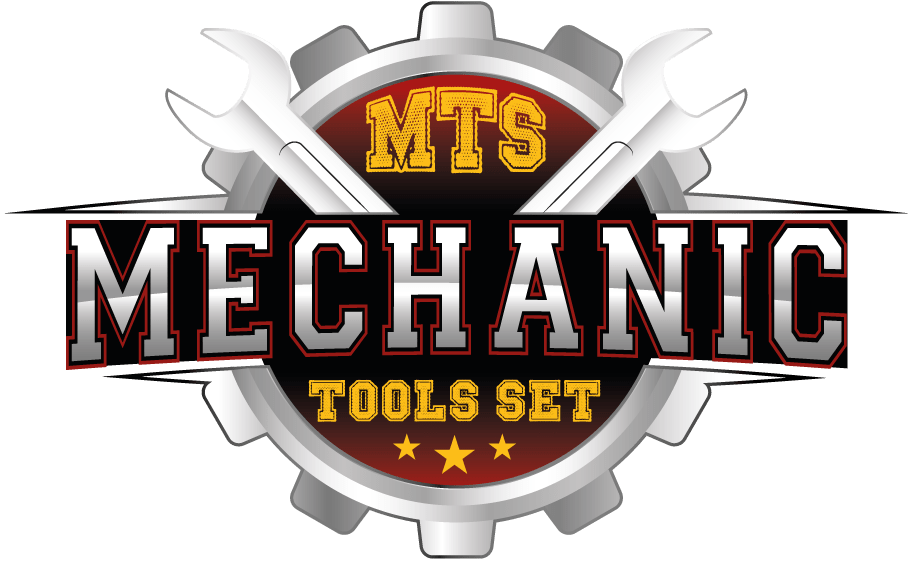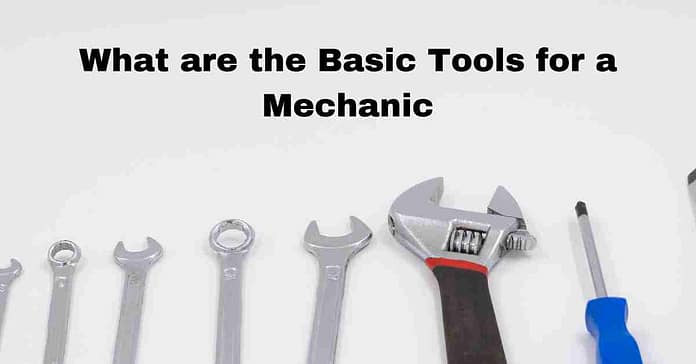The basic tools for a mechanic include wrenches and sockets, pliers, screwdrivers, hammers, and a torque wrench. A mechanic must have access to these tools to perform basic repairs and maintenance on vehicles.
Mechanics rely on a set of essential tools to diagnose and fix problems with vehicles. Basically, these tools include wrenches and sockets of various sizes, pliers, screwdrivers, hammers, and a torque wrench. Besides, without these tools, mechanics cannot perform basic repairs and maintenance, which can lead to more significant problems down the road.
As such, having access to a complete set of tools is essential for any mechanic. However, we will explore the basic tools that every mechanic needs to have in their toolbox.
Hand Tools
Additionally, hand tools are essential for any mechanic to efficiently perform various tasks. Let’s explore the key hand tools every mechanic should have in their toolbox:
Screwdrivers
- First, flathead and Phillips screwdrivers are fundamental for loosening or tightening screws.
- Also, ensure you have a variety of sizes to fit different screw heads.
- Quality screwdrivers with comfortable grips provide better control and prevent hand fatigue.
Wrenches
- Combination wrenches with both open-end and box-end are versatile for various applications.
- Ratchet wrenches allow for quick tightening and loosening of bolts and nuts.
- Invest in durable wrenches made of high-quality materials for longevity.
Pliers
- Needle-nose pliers are handy for reaching tight spaces and gripping small objects.
- Locking pliers provide a secure grip and can be locked into position for stability.
- Choose pliers with ergonomic handles for comfortable use during prolonged tasks.
Power Tools
Significantly, power tools are essential for mechanics, providing the efficiency and force needed to tackle various tasks in automotive and machinery repair. Furthermore, these tools not only make the work easier but also significantly reduce the time required to complete a job. Let’s take a closer look at some of the basic power tools that every mechanic should have in their arsenal.
Impact Wrench
Further, an impact wrench is a staple in any mechanic’s workshop. Later, it delivers high torque output, making it ideal for loosening or tightening bolts and nuts with speed and precision. This tool is particularly useful for tasks such as changing tires and working on suspension components.
Air Compressor
An air compressor is a versatile power tool that provides the necessary air pressure for various pneumatic tools, including impact wrenches, air ratchets, and pneumatic grinders. Basically, it is a crucial component in a mechanic’s arsenal, offering consistent power for a wide range of applications.
Grinder
However, a grinder is a versatile power tool that mechanics use for tasks such as cutting, grinding, and polishing metal surfaces. Whether it’s removing rust or smoothing out rough edges, a grinder is indispensable in the workshop for achieving precise and smooth finishes on metal components.
Diagnostic Tools
Basically, when it comes to diagnosing and repairing vehicles, mechanics rely on a range of diagnostic tools to identify problems and find effective solutions. However, these tools are essential for pinpointing issues with engines, electrical systems, and other components,. Let’s take a look at some of the basic diagnostic tools that every mechanic should have in their arsenal.
Obd-ii Scanner
Significantly, the On-Board Diagnostics (OBD-II) scanner is a vital tool for modern-day mechanics. Thereafter, it connects to the vehicle’s onboard computer system to retrieve diagnostic trouble codes (DTCs) and provide valuable insights into engine performance, emissions, and other vital systems. With the ability to read live data and perform comprehensive scans, OBD-II scanners are indispensable for troubleshooting and identifying the root cause of mechanical and electrical issues.
Multimeter
Therefore, A multimeter is an essential diagnostic tool for measuring voltage, current, and resistance in electrical circuits. Multimeters enable mechanics to perform various tests, such as checking battery voltage, testing sensors, and diagnosing wiring problems. Indeed, With its versatility and accuracy, a multimeter is a must-have for troubleshooting electrical issues in vehicles.
Borescope
When it comes to inspecting hard-to-reach areas within the engine, a borescope is invaluable. Hence, this diagnostic tool features a flexible, illuminated camera that can be inserted into tight spaces to visually inspect components such as cylinders, valves, and pistons. Further, mechanics rely on borescopes to identify issues such as carbon buildup, valve damage, and other internal engine problems without the need for extensive disassembly.
Specialized Tools
Therefore, Specialized tools are crucial for mechanics to tackle specific tasks efficiently. These tools are designed to handle the unique challenges encountered in automotive repair and maintenance. Hence, Here are some essential specialized tools every mechanic should have:
Torque Wrench
Afterthat, A torque wrench is an indispensable tool for precise tightening of bolts and nuts. Additionally, this ensures that fasteners are tightened to the manufacturer’s specified torque, preventing under- or over-tightening which can lead to mechanical failures.
Ball Joint Separator
A ball joint separator is essential for separating ball joints from steering knuckles and controlling arms without damaging surrounding components. This tool simplifies the process of replacing ball joints and is vital for suspension and steering system maintenance.
Oil Filter Wrench
An oil filter wrench is designed to securely grip and remove oil filters during oil changes. It provides a firm grip on the filter housing, preventing slippage and damage. Having the right oil filter wrench ensures smooth and efficient filter replacement.
Safety Equipment
When it comes to working as a mechanic, safety is of paramount importance. Proper safety equipment not only protects the mechanic from potential hazards but also allows them to work more efficiently. Here are the essential safety equipment that every mechanic should have:
Gloves
Firstly, Gloves are an indispensable safety tool for mechanics. They protect hands from cuts, abrasions, and exposure to harmful chemicals. Nitrile gloves are ideal for handling oils and chemicals, while leather gloves provide protection from sharp objects.
Safety Glasses
Then, Safety glasses are vital for safeguarding the mechanic’s eyes from debris, sparks, and chemicals. They should have impact-resistant lenses and a comfortable fit to ensure maximum protection without compromising visibility.
Ear Protection
Later, Ear protection is crucial to prevent hearing damage from the loud noise of power tools and machinery. Earplugs or earmuffs should be worn to reduce the risk of long-term hearing loss.
Tool Storage
Tool Storage: Significantly, Proper organization of it is essential for a mechanic to work efficiently. Different types of tool storage solutions are available to cater to various needs and preferences.
Toolbox
Basically, A toolbox is a portable storage option for mechanics to carry essential tools to different job sites. It typically has multiple compartments for easy organization.
Tool Chest
Although, A tool chest is a larger, stationary storage unit with multiple drawers for storing a wide range of tools. It provides a more organized and secure way to keep it in a workshop.
Pegboard
Pegboards are a versatile storage solution where they are hung on hooks or placed in containers on a board. Moreover, This allows for easy visibility and access to tools, making it a popular choice for workshops.
Maintenance And Care
However, Proper maintenance and care are essential for mechanics to ensure optimal performance and longevity. By following a few simple practices, mechanics can keep their tools in top condition for efficient use.
Cleaning And Lubrication
- Regularly clean after each use to prevent dirt buildup.
- Use a degreaser to remove oil and grease.
- Apply lubricant to moving parts to prevent rust and ensure smooth operation.
Proper Storage
- Store tools in a dry place to prevent rust and corrosion.
- Use toolboxes or cabinets to keep tools organized and protected.
- Avoid exposure to extreme temperatures that can damage tools.
Regular Inspections
Regularly inspect tools for signs of wear or damage to address any issues promptly.
Check for loose or missing parts that may affect its performance.
Replace damaged tools or parts to maintain its effectiveness.
Frequently Asked Questions
What Are The Main Tools Of A Mechanic?
The main tools of a mechanic include wrenches, screwdrivers, pliers, sockets, and ratchets. These tools help with repairing and maintaining vehicles.
What Is Something Every Mechanic Needs?
Every mechanic needs a reliable set of tools to effectively repair and maintain vehicles.
What Tools Do You Need For A First Year Mechanic?
A first-year mechanic needs this, like a socket set, wrenches, pliers, screwdrivers, and a torque wrench. They also need a jack, jack stands, and a creeper to work underneath vehicles. Safety gear like gloves, goggles, and ear protection are essential.
A diagnostic scanner and a basic multimeter are also useful.
What Are The Basic Hand Tools And Equipment In Automotive Service?
Basic hand tools and equipment in automotive services include wrenches, screwdrivers, pliers, sockets, ratchets, torque wrenches, jacks, jack stands, and lifts. These are used for various tasks such as loosening and tightening bolts, removing and installing components, and raising and supporting vehicles.
Conclusion
To sum up, the basic tools for a mechanic are essential for efficient and effective work. Investing in a quality mechanical set can save time and improve productivity. By having a well-equipped toolbox, mechanics can tackle any job with confidence and precision.
Keep your tools organized and well-maintained for optimal performance.
Read More
Best Mechanic Tool Sets for Reliable Repairs
The Complete Guide to Laptop Stands
Best Master Mechanic Tool Sets to Fix Anything!
Best Garden Hose to Boost Your Outdoor Comfort
Best Garden Tiller With Good Features

